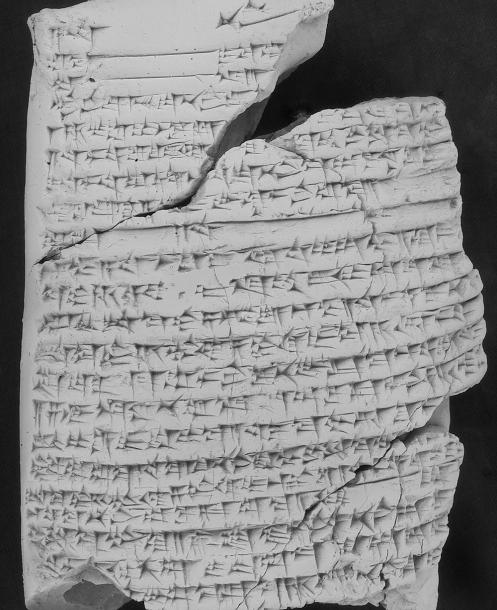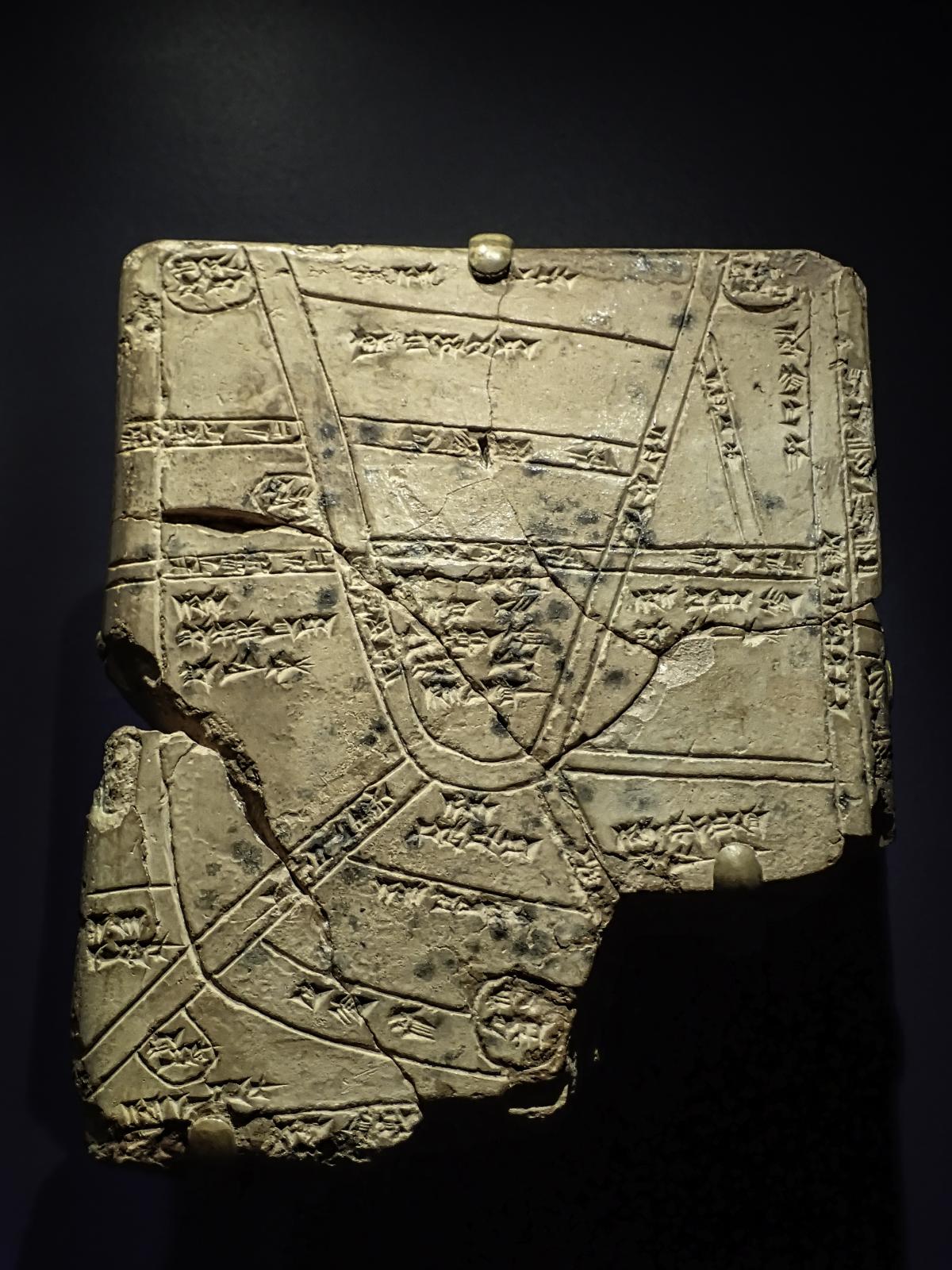The city of Mari, in modern Syria, didn’t experience the typical birth and growth of city, rising out of the dust and rubble of earlier smaller settlements. It was a planned city, an ancient equivalent of Brasilia, Milton Keynes, or the Disney Corporation’s Celebration, Florida. It was founded around 2900 BC to control trade passing by boat along the Euphrates and by caravan across the desert. Despite its northerly location, the city had a deep links with the Sumerians to the south and this allowed it to serve as a kind of go-between or buffer state between the Sumerians and the Eblaites to the north.
But I don’t want to talk about geopolitics. Today I’ve awoken in the mood to talk about dreams.
Mari is famous for the vast quantity of records they kept, and which have been uncovered in the almost 90 years since it was rediscovered in 1933. Bedouin tribespeople were digging at Tell Hariri and uncovered a headless statue. The story goes that they were either looking for a stone to mark a dead tribesman’s grave, or perhaps digging the grave itself. They were joined by a team of French archaeologists led by André Parrot, and eventually turned up over 20,000 tablets. Many of these finds were letters like the one you see today and contained everything from personal correspondence to letters from one king to another.
In one of the Mari letters, a man replies to a letter from a woman saying that she should “dream her own dream”. A sentiment like that sounds just too anachronistic to be real – more like it were plucked from an Instagram feed or a motivational poster. I tried to track down an image of this tablet to find more context but couldn’t uncover the original. I did find a German translation of the letter though, and passing it through Google Translate yielded, “You have seen your own dreams. You have so far ripped them out”. Something of a different sentiment? Maybe a hint of frustration?
There’s something intimate about reading someone else’s letters, even at this great remove. They contain a person’s unfiltered thoughts and desires and tell us what they felt was the most important thing they had to communicate at a specific point in time. But how much more intimate when the subject is their dreams? If a letter is a door to the writer’s conscious mind, a letter about a dream is a keyhole to their unconscious. Jung’s “little hidden door in the innermost and most secret recesses of the psyche”.
Considering this, the Mesopotamian custom that one should always tell someone if you have dreamed about them shows an openness of the soul. A radical honesty. We saw this custom last week in Sargon the Great’s dream about Ur-Zababa. Most of us would have been tempted to keep to ourselves a dream that our master was going to be killed by a goddess on our behalf, but Sargon felt compelled to speak out. That honesty worked out for him, and he went on to become the most powerful person in the world.
So maybe we should follow his example, and the advice of the unnamed letter-writer. Plant our dreams at the feet of the world and tend to them as they grow. Stop ripping them out by the roots and give them time and light. Speak of them, make them real.

